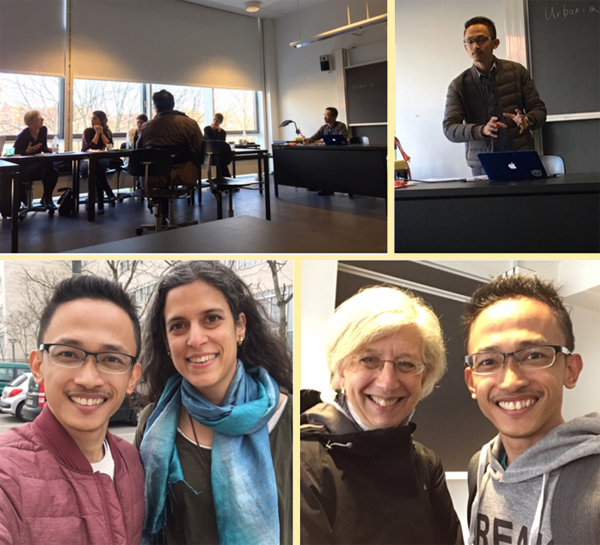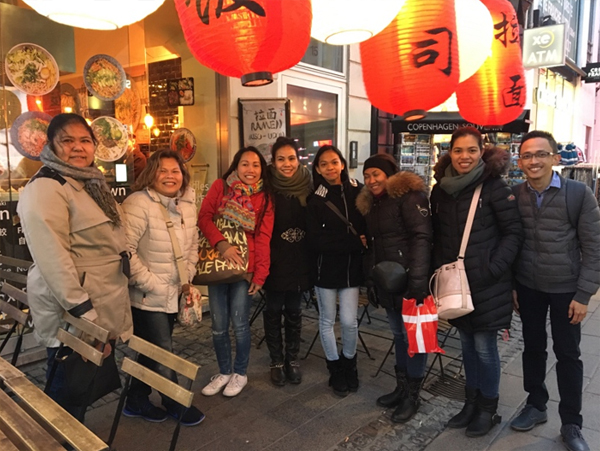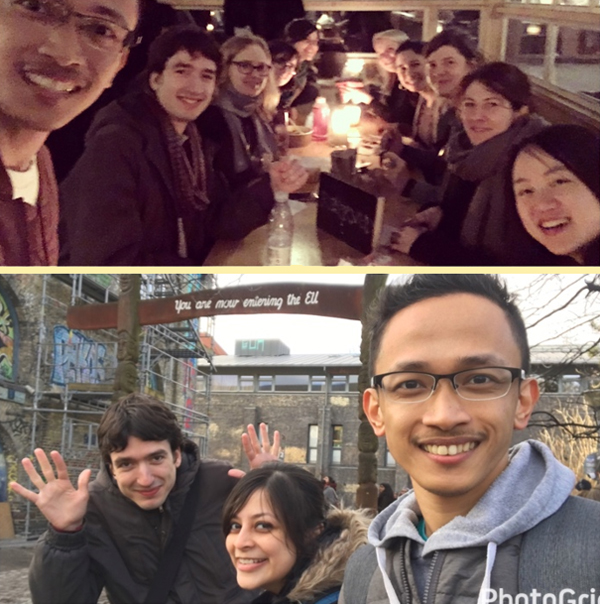Copenhagen PhD Winterschool: A research trip of many firsts
by Nicanor Guinto
Before heading to Copenhagen, I had no concept of what a winter/summer school looked like. My idea of an international academic gathering was limited only to conferences that I’d attended in the past. In my previous experience, these are normally gatherings where, as a ‘small potato’ researcher, you’re expected to rush through your slides and talk as rapidly as you can for 10-15 minutes on a topic that you may have spent sleepless weeks or even months researching and preparing.
Then, you may be interrogated for 5 minutes by fellow participants if you’re lucky somebody found your name or presentation title striking from the long list of conference presenters. If not, you’ll have to deal only with the two or three other people in your session. Some participants are genuinely interested in asking questions and finding answers, while others throw random, disinterested questions at you for personal recognition and gratification. They may be unaware of the struggles you’ve gone through just to be at the conference, or are themselves in the same boat, dreading their own time in the hot seat. And don’t forget shelling out for the hefty conference registration fee and travel expenses!
But from the beginning, my experience of the Copenhagen PhD Winterschool in Sociolinguistics, which was held at the University of Copenhagen in Denmark from March 13-17, 2017, was far different. One thing that surprised me was that there was no registration fee to partake in the activity. Instead, what it took was a convincing proposal to earn you one of the limited seats. And my travel was possible due to the Pilot Scheme for Internationalisation of RPg Grant, a financial support that is part of the commitment of the University of Hong Kong to exposing its research postgraduate students to international dialogues elsewhere.
Thus enabled to attend in the first place, I found the format of the Winterschool to be pleasantly far from my previous conference experiences. It was five days of intensive research training where mornings were dedicated to discussions by the ‘teachers’. They were Janus Møller, Marie Maegaard, and Pia Quist (University of Copenhagen), Devyani Sharma (Queen Mary University of London), Monica Heller (University of Toronto), and Rickard Jonsson (Stockholm University). Drawing on their own research, they informed us about contemporary issues and pragmatic considerations in sociolinguistic studies that are otherwise still left unsaid in methods books.
Thereafter, we each had our chance to be the ‘plenary speaker’ and talked about our research for up to 40 minutes. In my case, it was truly liberating not to worry too much about time because I felt more satisfied to have delivered all my points. In turn, I felt that I was more ready to address questions and comments. In a small group of only 25 participants who are at different stages of their PhD, everybody got the chance to be the ‘teacher’ by sharing their own experience and struggles in writing and data gathering in response to each of the presentations and discussion points raised by the speaker. Unlike in big, traditional conferences where there are parallel sessions, every participant of the winter school had the chance to listen to, learn from, and give their thoughts on each of the participants’ talks. I felt it was a collegial, supportive and encouraging environment that was far from some of the less friendly, rather depressing gatherings I had the unfortunate opportunity to attend in the past. So instead of being frightened, I was excited for my turn, which was scheduled on the third day of the winter school.

During my talk (above), and during lunch and coffee breaks with winter school teachers Devyani Sharma (below, left) and Monica Heller (below, right)
Outside of the programmed portion, the trip was one of many firsts for me. It was my first time to travel to Europe, which was a living museum to my eyes, and my first time to experience near- to sub-zero temperatures as I’ve lived and travelled for the most part of my life in the tropics. My travel there also helped expand my perspective on my research by giving me a clearer picture of the 10% of the Philippine population who are working outside the Philippines. Filipino migrant workers are everywhere, and I met some of them in Copenhagen, Paris, and Amsterdam.

Filipino migrant workers I met in Copenhagen, Denmark
When I travel, I prefer a lot of walking to taking the subway or other forms of public transport. In research-related gatherings I’d attended in the past, I very seldom met people who would agree to walk with me to reach unexpected places even in unkind weather conditions. But this time, it was excitingly different.

Newfound friends in the Winterschool. Daan, Tiyasha, and I (below) walked for several kilometers under heavy rains and chilly weather just to reach a community in the ‘periphery’ of Copenhagen.
Overall, it was a wonderful and illuminating trip, and I owe thanks not only to my new friends from the Winterschool and the excellent instructors, but also to HKU’s funding support, and one supportive person in particular at HKU. This wouldn’t have been possible for me if not for the support of, and the intellectually stimulating discussions I had with, my supervisor Professor Adam Jaworski. Thank you!

Our apologies, you must be logged in to post a comment.